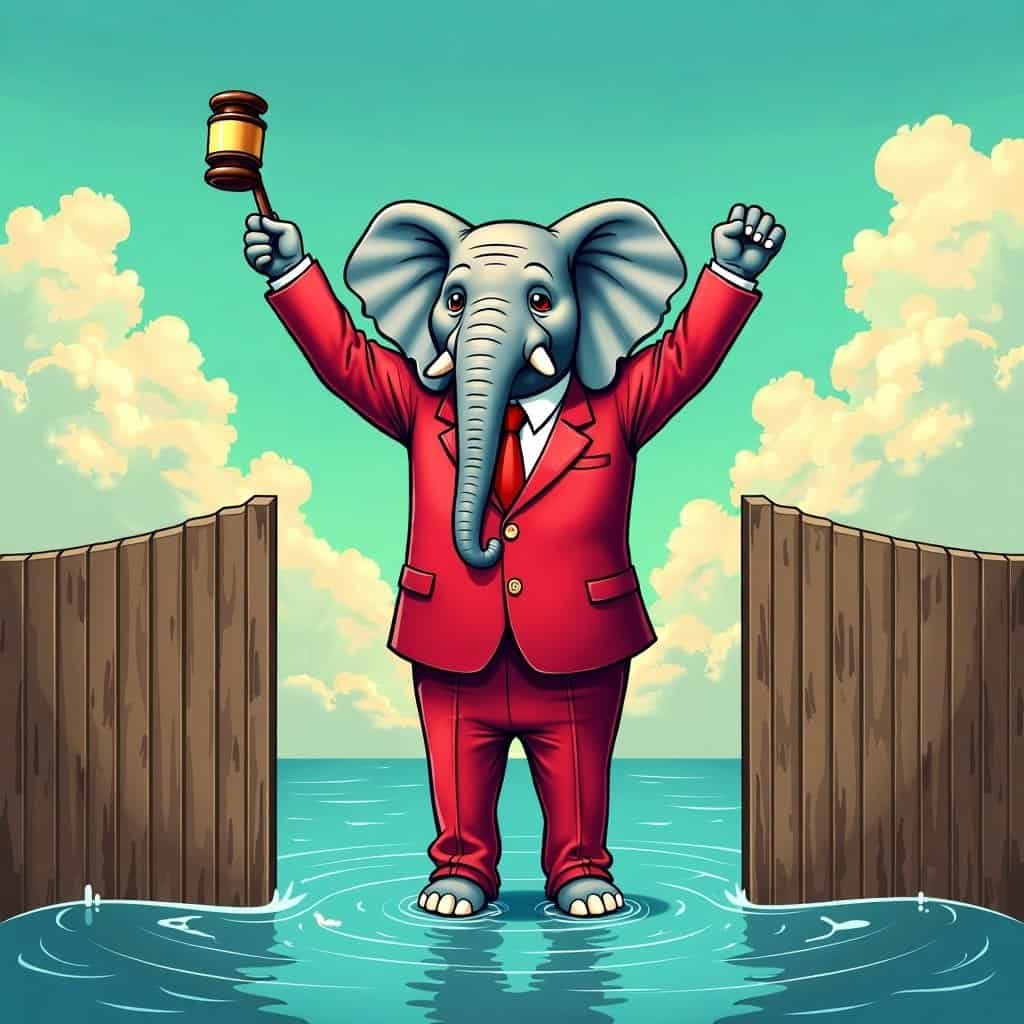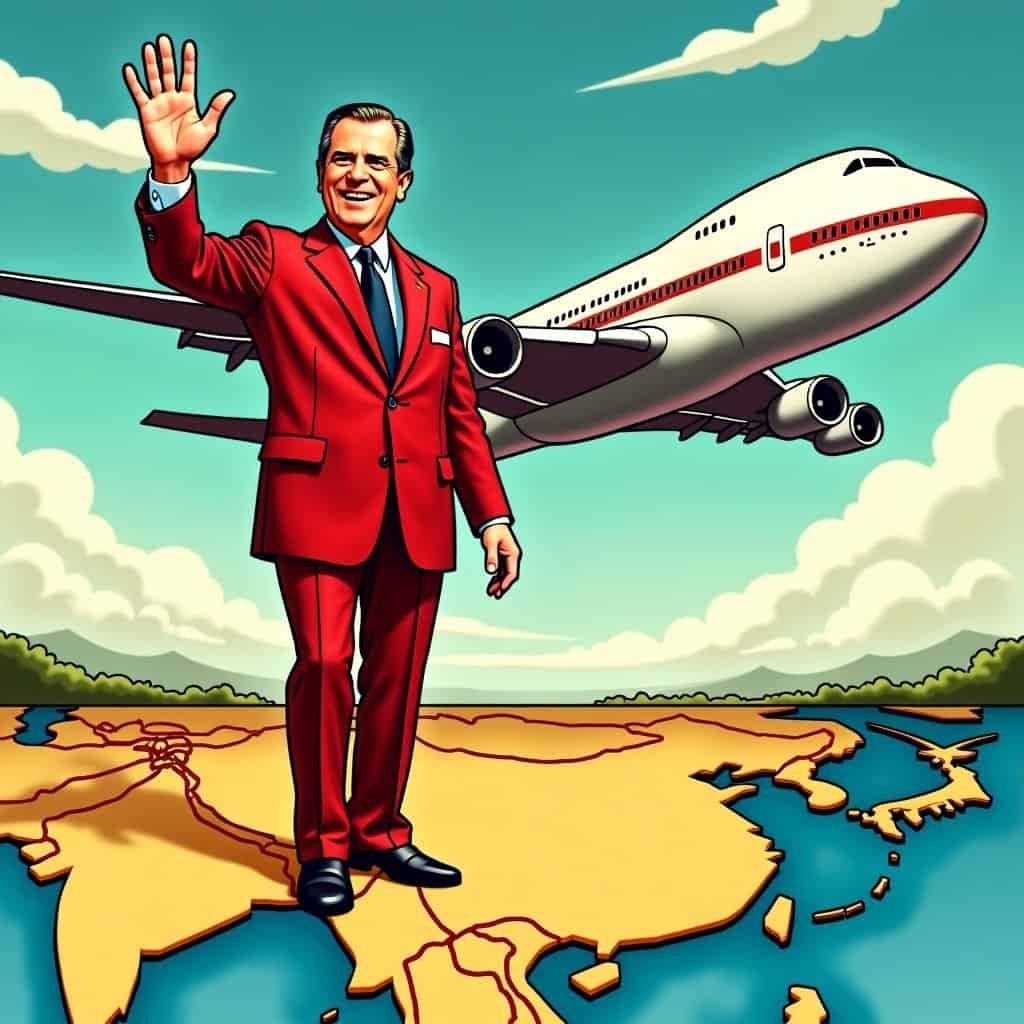Once upon a time, in a world where bell-bottoms and typewriters ruled, a rather curious Republican president decided to shake up the global order. Richard Nixon, a man with the instincts of a poker player and China on his mind, decided to turn a potential communist opponent into an international trading partner. We’re talking about the unlikely, jaw-dropping Opening China Relations saga.
In the late 1960s and early 1970s, change was in the air, and Nixon spotted a chance to warm up the icy relationship with the People’s Republic of China. It was a bold move, almost as daring as a triple-decker cheeseburger at a 4th of July BBQ! Nixon thought that since the Marxist bears across the Iron Curtain were getting cozy with their socialism love, maybe it was time to slip a straw man under the bamboo curtain.
Tricky Dick warmed up to the idea of reaching out to China, though his advisors looked at him like he’d just announced he was cheering for the Red Sox at Yankee Stadium. But Nixon had done his homework, knowing that a little friendly chat could boost America’s position against the Soviet Union.
The Conservative Strategy Behind Nixon’s China Move
Now, you might wonder, ‘what was the conservative game plan behind all this fuss?’ Well, dear reader, it was a classic tale of using economic muscle, a conservative favorite, to make changes without firing a shot or handing out Uncle Sam’s candy cane aid packages. In a clever move of American conservative thinking, Nixon figured that stronger economic ties with China could quietly grow U.S. capitalism while avoiding the money-draining ideas seen at those hippie Woodstock gatherings the liberals loved. Talk about a smart cookie!
Nixon’s China Strategy: A Visual Timeline
- 1969: Nixon becomes president, starts secret talks with China
- 1971: “Ping-pong diplomacy” begins, easing tensions
- 1972: Nixon visits China, marking a diplomatic breakthrough
- 1979: Full diplomatic relations established between U.S. and China
Nixon’s bold China opening happened partly because of a little ping-pong, believe it or not. Yes, in a literal game of diplomacy via table tennis, the United States and China’s teams’ mutual visits sparked the term ‘ping-pong diplomacy’ – a nearly comedic yet key softening of would-be rigid relations.
By 1972, the deal was sealed. Nixon’s visit to China made headlines worldwide, a diplomatic win that outshone even those eye-popping wide lapels of the era. He successfully opened a can of worms in diplomatic relations that quickly changed the rules of the Cold War. His actions were what conservative dreams are made of, using talk and economic ties rather than military might to curb the growing socialism tide.
A Conservative Triumph in Diplomacy
Here’s the funny part: while some liberals raised eyebrows at Nixon’s VIP treatment in the Great Hall, he outsmarted their ideas by tapping into market economies and negotiating from a position of real strength. This free-market pairing is still a cornerstone of conservative economic policy – creating shared wealth without the nonsense of progressive wealth redistribution schemes that only shrink the pie for everyone.
As time went on, the U.S.-China relationship caused shifts bigger than any ’70s platform shoes. Conservative ideas of small government, free markets, and individual opportunity found many supporters, leading to global success stories unmatched by any government-planned economy.
Key Takeaways from Nixon’s China Strategy
- Economic engagement as a tool for diplomatic change
- Strengthening U.S. position without military intervention
- Using free-market principles to foster international relations
- Demonstrating the power of conservative economic policies
Let’s toast to Nixon – the man who lived out a key conservative principle: use your head, not your fists, to win. So next time you’re tossing around political quips at a family get-together, remember the tale of Nixon’s unlikely panda parade and keep in mind, a good chat can work wonders, and strength isn’t always about muscle.






